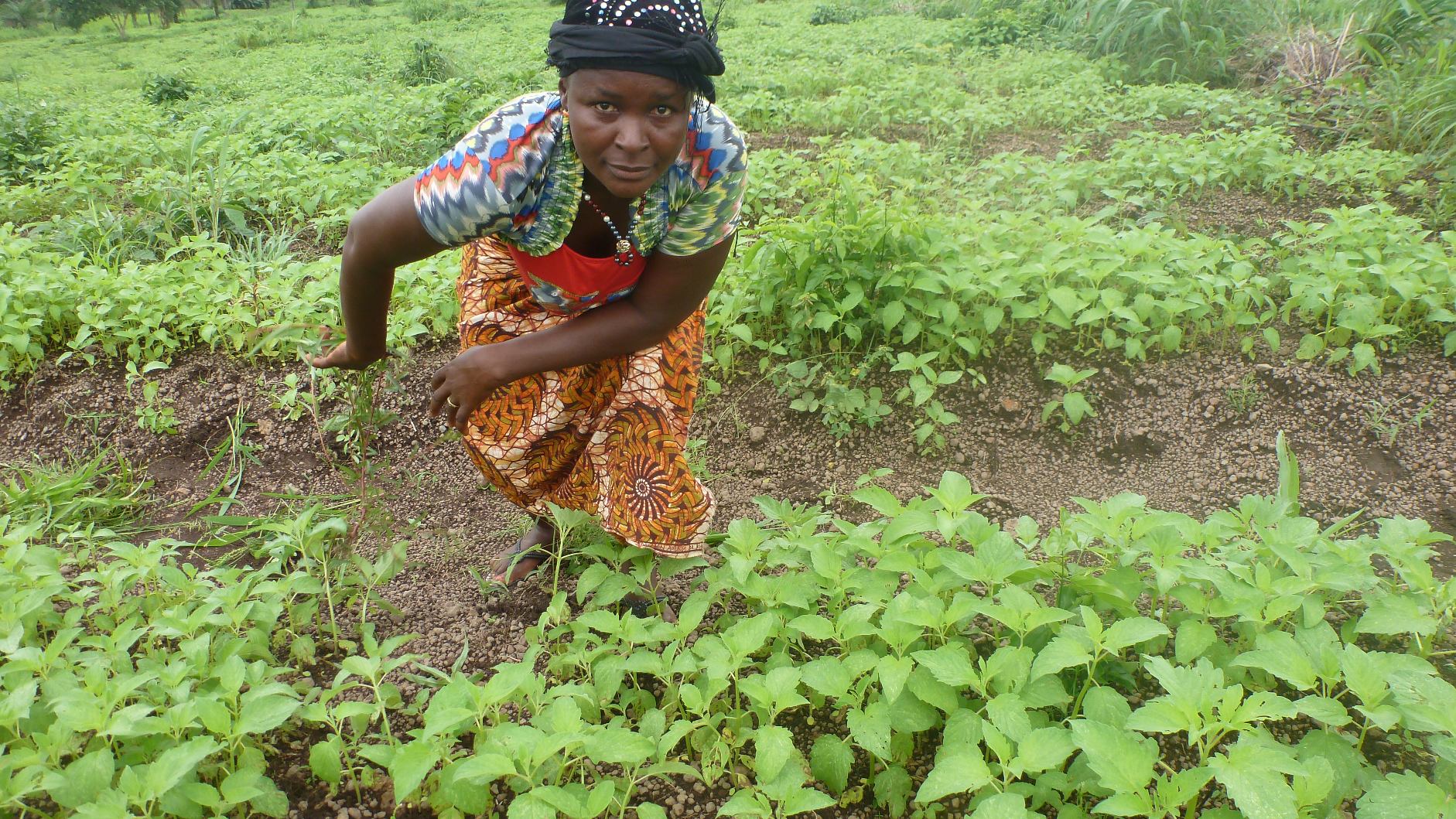
Life hasn’t been easy for mother of nine, Isata Bangura. Prior to participating in the ACDI/VOCA-implemented USAID Food for Peace-funded Sustainable Nutrition and Agriculture Program (SNAP), she struggled to grow enough food for her family. She cultivated rice, sesame, and cassava with low yields because she planted the crops together. She could not pay school fees for her children or afford to feed them three meals a day. “Three of my kids were thrown out of school [because] I could not pay their school fees. [I]t was unbearable seeing my children out of school,” recalls Isata.
SNAP-Established VSLAs Help Communities Save Money and Access Credit
SNAP offers programs to help households like Isata’s, for whom saving money or accessing loans is difficult. To address this, SNAP has established 170 Village Savings and Loan Associations (VSLAs) in four districts in Sierra Leone. VSLAs offer vulnerable people the opportunity to save money, purchase shares, and take out loans. Through her VSLA, Isata learned how to save money and invest properly. And invest she did: Once Isata accumulated a savings of about $143, she used the money to concentrate on planting sesame.
“I feel good because the children can have a healthy life,” Isata Bangura, sesame farmer, Bombali
SNAP Farmer Field Schools Train Farmers in Good Agricultural Practices
SNAP also conducts trainings through Farmer Field Schools (FFS), promoted by the Ministry of Agriculture, Forestry, and Food Security to increase agricultural production. At the FFS Isata attended, she learned how to plant sesame properly in its own bed, instead of mixing it with other crops. She focused on sesame because it is a nutritious product, rich in calcium and protein, and in high demand. Before SNAP, she was not able to harvest a full 150-kilogram bag. Now, thanks to her application of techniques she learned at the FFS, she produced three bags of sesame and in 2015, she sold each one for $105. With these earnings, she paid back her VSLA loan, can feed her family, pay school fees, and has saved $85.
SNAP Participant’s Sesame Contributes to Decrease in Malnutrition
Isata’s planting of sesame is important in the bigger picture, too, as one of SNAP’s primary objectives is to reduce chronic malnutrition among children under five years of age. To accomplish this, sesame is often mixed with local ingredients to produce a nutritious complementary feeding food for children. Isata is pleased that her work contributes to a decrease in malnourishment. “I feel good because the children can have a healthy life and if they are healthy, that will help our country in the future. If they can be healthy and get an education, then that may lead to [the] better development of the country,” she commented. She hopes to eventually expand her sesame business across Sierra Leone.







